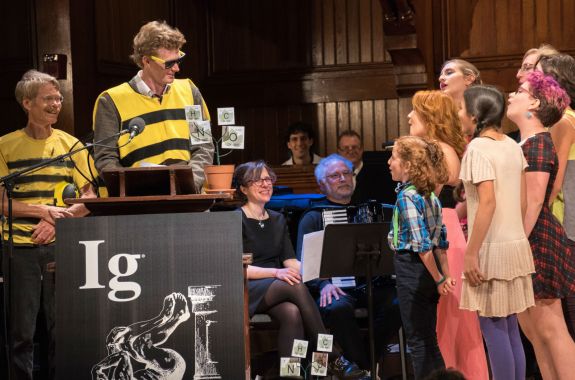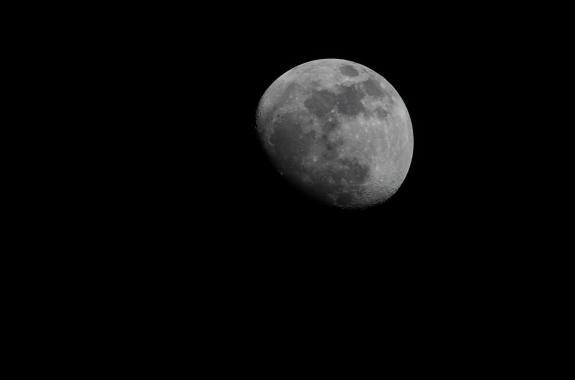As Science Friday’s director and senior producer, Charles Bergquist channels the chaos of a live production studio into something sounding like a radio program. He coordinates in-studio activities each week from 1-4. And then collapses. He also produces pieces for the radio show. His favorite topics involve planetary sciences, chemistry, materials, and shiny things with blinking lights.
Charles has been at Science Friday longer than anyone on staff except Ira, and so serves as a repository of sometimes useful, sometimes useless knowledge about the program. He remembers the time an audience member decided to recite a love poem during a live remote broadcast, the time the whole staff went for ice cream at midnight in Fairbanks, Alaska, and the name of that guy Ira is trying to remember from a few years back who did something with space.
He hails from southeastern Pennsylvania and worked for a while as a demonstrator at the Franklin Institute, Philadelphia’s science museum (favorite devices: Maillardet’s Automaton, the stream table, the Chladni plates). He has a degree in chemistry from the University of Delaware, home of the Fighting Blue Hens, and a master’s in journalism from New York University’s Science, Health, and Environmental Reporting Program. However, he attended the program prior to the addition of ‘Health’ to its name, which may explain his slight unease when covering medical topics.
Outside the walls of Science Friday, he enjoys backpacking, camping, cooking not-entirely-healthy things, reading escapist fiction, and trying to unravel his children’s complicated stories.
15:26
A Microbiome Is Born
Researchers are trying to sort out what effect factors like an infant’s delivery method and early diet have on its community of microorganisms.
8:58
For the Lowly Incandescent Bulb, a Ray of Hope
Physicists have been able to “recycle” some of the incandescent light bulb’s wasted heat and emit it as visible light, boosting efficiency.
28:37
Viewing the Road Ahead for Self-Driving Cars
Imagine a future in which all cars can drive themselves. What might that do to our cities, towns, and society?
29:27
A Look Back at the Future of Personal Computing
Tech industry observer Esther Dyson looks back at predictions she made about the future of personal computing, circa 1992.
47:47
Somewhat Silly Science Earns Ig Nobel Prizes
The Ig Nobel Prizes honor scientific research that first makes you laugh, then makes you think.
10:38
How YOU Solved the Science Club Message Challenge
The Science Club meets to discuss your innovative methods for getting a message from one place to another.
06:26
The Science Club Tackles a Communications Challenge
This season’s Science Club project asks you to invent your own communications device.
12:08
On Mars, Signs of a Wetter World
Planetary scientist James Wray describes the evidence for present-day liquid water on Mars.
9:33
Keeping an Eye on Our Celestial Companion
Dean Regas, outreach astronomer at the Cincinnati Observatory and co-host of the PBS series “Star Gazers,” shares moon-viewing tips and a dose of lunar lore.
6:38
From Hawking, a New View of Black Holes
At a recent scientific meeting, physicist Stephen Hawking outlined a possible solution to a paradox about information in a black hole.





